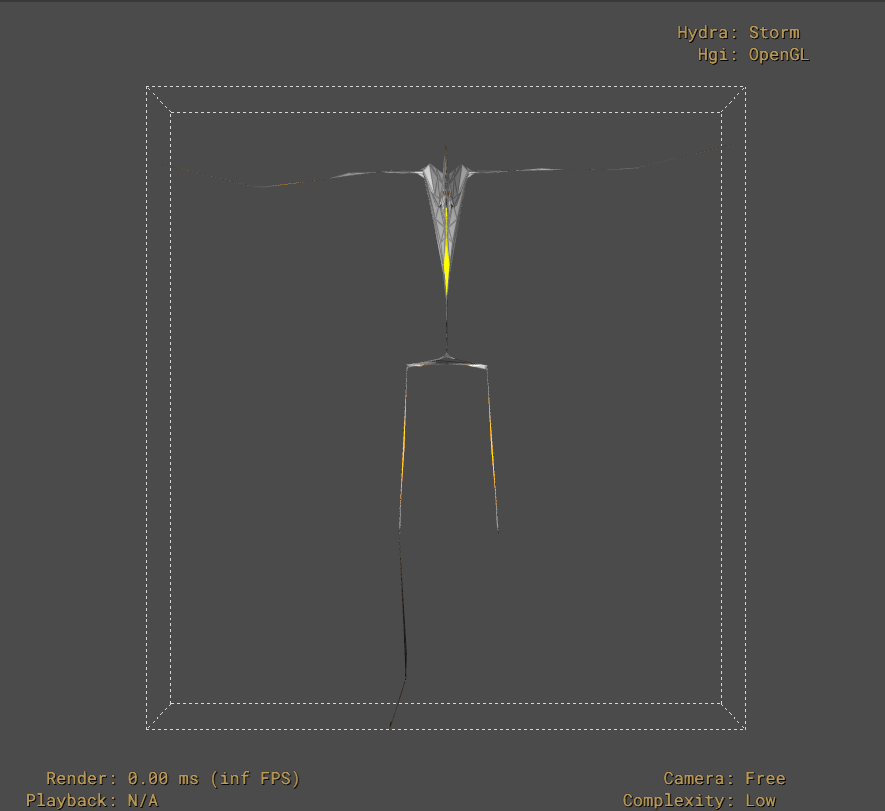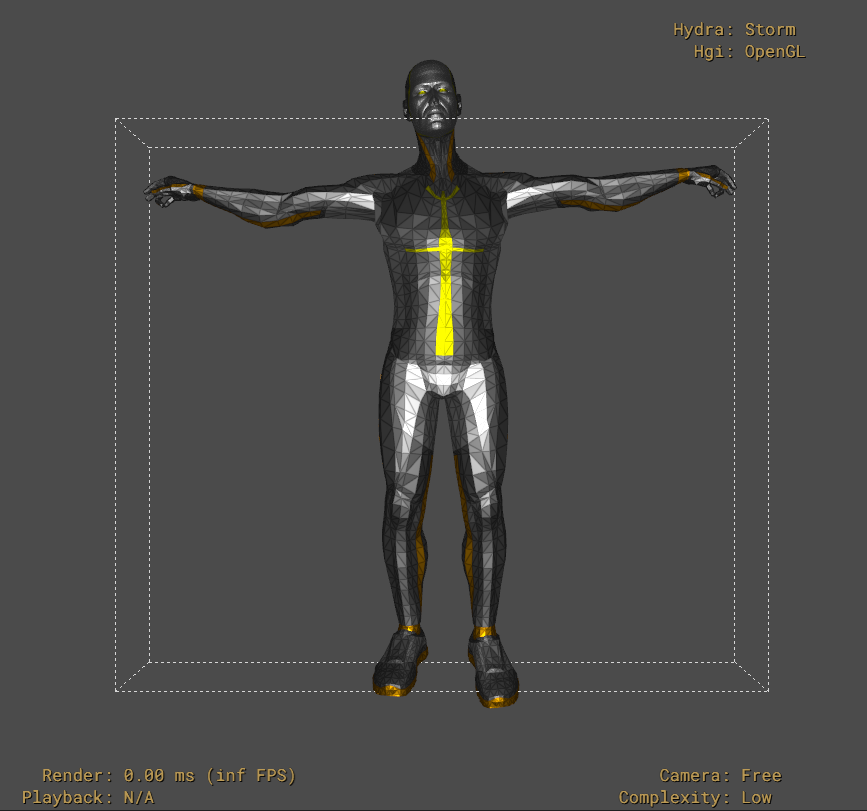Scaling Animation Data
Overview
The BVH format is unitless, in that it doesn’t encode a meters per unit value. Instead, it is the responsibility of the consumer to understand what units are represented in the BVH file and scale this when necessary.
A consequence of this is that the plug-in cannot provide root-level metersPerUnit layer metadata,
nor can it automatically scale the BVH data into some standard unit.
Furthermore, the SkelAnimation prim is not xformable, and doesn’t provide a means of scaling the
animation to conform to the the units of the stage.
These issues motivate an alternative solution for animation scaling.
The scale Argument
The plug-in can accept an optional file format argument to scale the animation data at import time.
This can be specified when authoring a reference to a BVH file as follows:
over "Animation"
(
references = @./walk_motion.bvh:SDF_FORMAT_ARGS:scale=0.01@
)
{
}
Here, the scale argument expects a decimal scaling value. This is applied to the BVH data
before it is translated into prims.
Example
As an example use case, suppose we have a stage that is authored in meters, and contains a model that we wish to animate with BVH animation. But also suppose the BVH animation data has been encoded in centimeters.
Without the scale argument, when applied to the model, the animation will cause the
model to explode, since the translations in the animation are 100 times larger than the
model’s skeleton:

We can fix this by using scale=0.01 to scale the animation such that it conforms to the
units of the stage:
